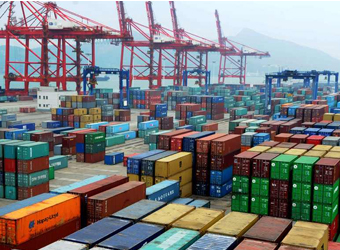Egypt’s imports stood at $42.2 billion during the first eight months of 2017, said the country’s state-owned statics agency CAPMAS on Sunday.
Imports during this period involved a broad range of products, including appliances and machinery at a value of $1 billion, hair accessories, combs and tweezers at $1.5 million, animals, poultry, meat, and fish at $1.2 billion, CAPMAS further added.
It further showed that imports of milk, cheese and eggs amounted to $298 million, while imports of nuts reached $37.7 million.
Other imports included fruits, beans, tea, coffee, spices, rice, flour, oil, mineral water, medications, pesticides, leather, wood, readymade garments, carpets, cars, toys, paintings, and diapers, the CAPMAS report said.
Egypt’s imports in the first nine months of 2017 dropped by 20 percent to $39.880 billion compared to $49.740 billion last year, according to previous statements by Trade Minister Tarek Qabil.
He said that the trade deficit stood at $23.39 billion during the first nine months of 2017, compared to $34.86 billion in the corresponding period of 2016.
Egypt’s trade balance was one of the beneficiaries from the flotation of the Egyptian pound late last year. The move, resulting in the pound losing almost half its value, made Egyptian goods in foreign markets attractively cheaper while doubling the cost of importing.
This has helped curb imports and encouraged local manufacturing in one of the positive impacts of flotation.
The Trade Ministry has also imposed dumping duties on some products to protect the local industry.
Earlier in December, the ministry maintained tariffs on steel rebar from China, Turkey, and Ukraine for five years, after complaints of local steel manufacturers from the big increases in steel rebar’s imports from these three countries. Source: Egypt today
Source: Egypt today
